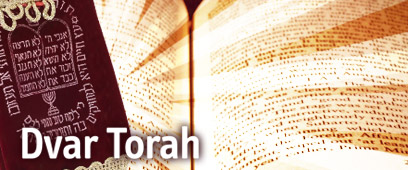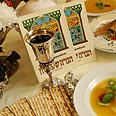

Illustration
Photo: Shaul Golan
At the end of the Haggadah, in the song, “Had Gadyah,” there is a description of the Holy-One-Blessed-be-He slaughtering the Angel of Death. This surprising end symbolically describes one of the hidden goals of the seder, which is the victory over death.
Every adult ponders from time to time what he will leave behind. Our corporal lives are limited, but each of us would like to leave a dent, even a small one, on this earth. We take photos endlessly (Why, actually? How often do we look at albums from our youth?), and wealthy people use monuments, plaques, and good deeds to be remembered. People have children and give them the names of the previous generation, as if to say that the chain is continuing.
The seder provides a substantive answer to this existential need, to leave something of us behind. The philosophy of the seder is that very little will remain of our private “I.” The private existence of most human beings will be forgotten.
Try to do a small test: Each of us has four great-grandfathers and four great-grandmothers. How many of their names do you remember? What did they do? Where did they live? It was only 100 years ago or less. And let’s not forget, a human being’s most basic identity is his name. How many of the parents of your grandparents and great grandparents do you know? It was only 120 years ago, more or less. Human memory is swept away by the present, and gives little attention to the past.
The seder does not suggest that we eliminate our private identity, Heaven forbid. The seder calls upon us to add our general layer as a basic element of identity. The seder provides us with a night in which we pass along the collective memory, the tribal memory.
We don’t remember our great-grandfather. But we do know exactly what he was doing on seder night 150 years ago. He was eating bitter herbs and haroset, and reading from the ancient Haggadah. Perhaps this year we are reading the Haggadah. We won't understand everything in it, but even through our somewhat incomprehensible reading we’ll connect to our past and our future in the endless time tunnel.
But the Haggadah does not end, and it invites us to add our own chapters to the ongoing exodus from Egypt, whose goal is to build a Jewish people securely in our own land. Therefore, on this night, our grandfathers and grandmothers will tell the story of their exodus from Egypt or of their parents from Morocco or Algeria, Yemen or Tunisia, Germany or Poland, the USSR or Ethiopia.
This night is the night when we pass on the tradition of the Jewish people. On this night we declare: We have roots. We have roots in this land, our spiritual roots in the Bible, whether we are religious, traditional, or secular. And even if we’re different, and even very different, from our grandparents’ grandparents, we still belong to the same chain. We are still connected to the same ancient tribe that refuses to die and is still living, kicking, and breathing, and that wants to finally fulfill itself completely.















